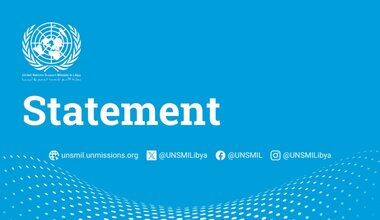Candidates Learn The Ways and Means of Constitution Drafting
As a teacher at a primary school in Benghazi, Khadeeja Mahmoud Al Omaamy is well-acquainted with lecturing. On a daily basis, she challenges her students to learn new things and work together. But for one day in February 2014, she found herself behind a desk, halfway across the country, taking notes and being encouraged to confront new topics with peers.
|
In Tripoli for a training workshop, Mrs. Al Omaamy, a candidate in the 20 February 2014 elections for Libya’s Constitution-Drafting Assembly (CDA), is grappling with intimidating questions about the elements of a democratic constitution. She is crystal clear about why she is undertaking this unconventional journey. “My motivation is my brother and my nephew, who were martyrs during the revolution,” explains Mrs. Al Omaamy, flanked by her 16-year old son, who accompanied her to Tripoli. “When they went against the old regime, they just wanted Libya to be a better country. I am doing this because I want to represent their voices, to guarantee that Libya will in fact be a better country.” Mrs. Al Omaamy was joined in Tripoli by 350 other candidates for a series of “Inclusive Constitution” training workshops organized by the United Nations Development Programme (UNDP) in Libya in partnership with the United Nations Support Mission in Libya (UNSMIL). These workshops were part of the UN’s continued efforts to support Libyan actors and provide technical support in the country’s democratic transition. Throughout several one-day intensive programs, the trainings provided candidates with an introduction to different kinds of constitutions and political systems, the topic of human rights in constitutions, and the process of constitution-drafting. For Ali Wadawi, an employee at the Water and Sewage Authority, also from Benghazi, the motivation to run for the 60-member CDA and participate in these trainings comes from a group of citizens he has come to represent. “I am motivated by the disability I have,” he says, holding the two crutches he needs in order to walk. “It is very important for there to be a representative of the disabled in the CDA, so he can guarantee that they won’t look at us with sympathy, as people to take care of – but that they look at our issues from a rights perspective.” With the help of trainers, all Arabic-speaking legal experts from neighbouring countries, the candidates considered what makes a constitution democratic and how a constitution can guarantee individual rights. These are just some of the daunting questions that will soon stare down the successful candidates of the CDA elections. On 20 February, Libyan voters will elect representatives to serve in this body, which will then have to draft a constitution to be put to a popular vote. With different motivations, and various degrees of personal sacrifice, many Libyans are ready to contribute first hand to the constitution-making process. And the “Inclusive Constitution” training is expected to have an impact beyond the walls of the CDA. “This experience will no doubt benefit all participants,” predicted UNSMIL’s Senior Advisor on Constitutional Affairs Mohamed Elghannam, one of the trainers. “Even those who won’t be successful on 20 February will be better able to contribute to the constitutional process from outside the Assembly after this experience.” |
 United Nations Peacekeeping
United Nations Peacekeeping UN
UN














